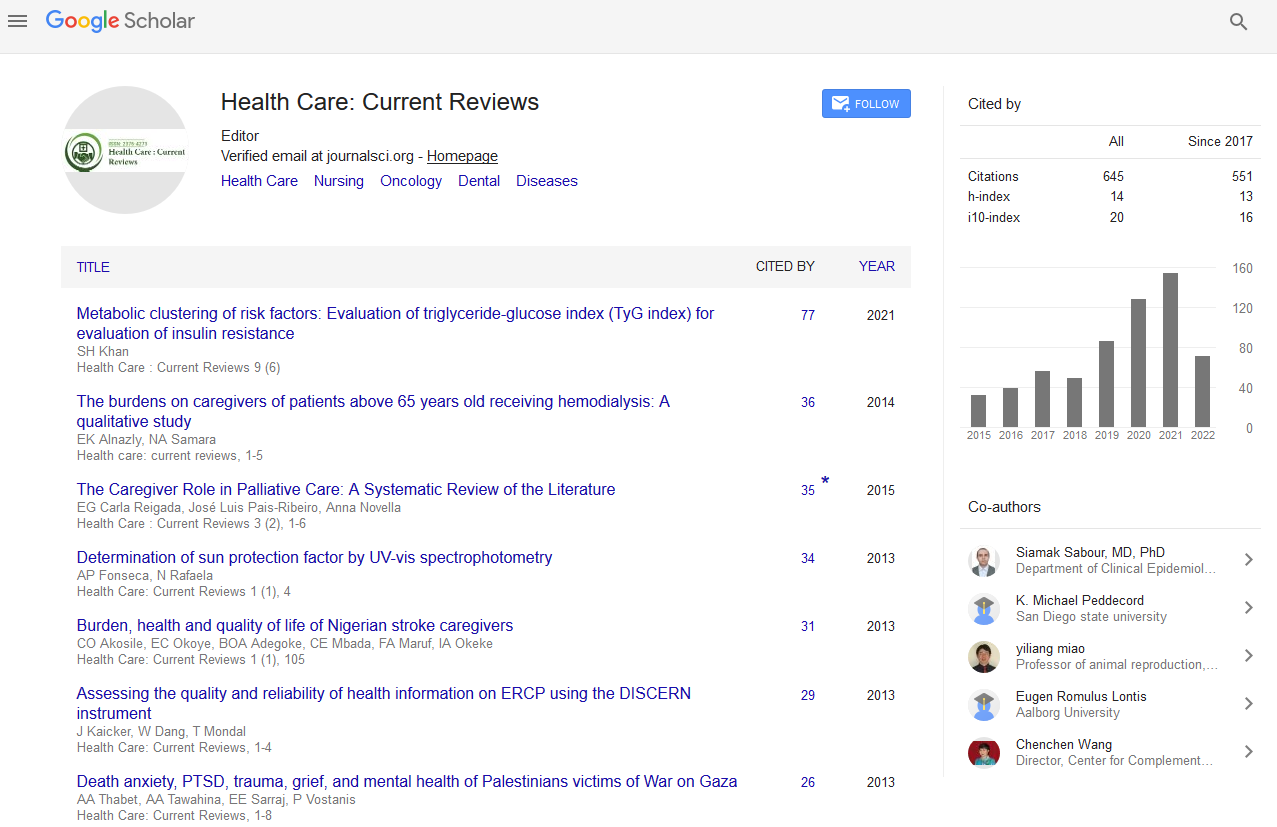PMC/PubMed Indexed Articles
Indexed In
- Open J Gate
- Academic Keys
- RefSeek
- Hamdard University
- EBSCO A-Z
- Publons
- Geneva Foundation for Medical Education and Research
- Google Scholar
Useful Links
Share This Page
Journal Flyer

Open Access Journals
- Agri and Aquaculture
- Biochemistry
- Bioinformatics & Systems Biology
- Business & Management
- Chemistry
- Clinical Sciences
- Engineering
- Food & Nutrition
- General Science
- Genetics & Molecular Biology
- Immunology & Microbiology
- Medical Sciences
- Neuroscience & Psychology
- Nursing & Health Care
- Pharmaceutical Sciences
Progress of intervention on postoperative enteral nutrition intolerance through jejunum
18th World Congress on Clinical Nursing & Practice
September 21-22, 2018|Prague, Czech Republic
Xu Yujie
Sichuan University, China
Posters & Accepted Abstracts: Health Care Current Reviews
Abstract:
Malnutrition is an independent risk factor for increasing the risk of death after surgery and is also a major negative factor affecting the clinical prognosis. Because, surgical lesions often involve the digestive tract, liver, pancreas, etc., which affect the digestion and absorption of nutrients, and increase the metabolism caused by surgical invasion, tissue damage and trauma stress and malnutrition are common to see. Surveys in Europe, North America and China show that the incidence of malnutrition in patients after surgery is as high as 30%-50%. Enteral nutrition is more suitable with the physiological structure, safe and effective, and as well as accelerates the recovery after the operation. So, it is the first choice for clinical nutrition support. Enteral nutrition through jejunum is a widely applied nutritional support therapy. However, the proportion of inpatient receiving enteral nutrition in domestic inpatients is only 43.7%, among clinical nutrition treatment, and nutritional intolerance is one of the most important restrictive factors. Various enteral intolerances can occur anytime during feeding process, resulting in interruption of enteral nutrition and influence on rehabilitation process. Therefore, how to accurately assess and diagnose nutritional intolerance and take the best treatment measures to ensure that energy needs become an urgent clinical problem, which needs to be solved. We conducted the literature review aim on feeding intolerance related concepts, incidence, influencing factors and effective interventions in clinical practice in order to guide clinical standardized treatment of intolerance of enteral nutrition and ensure energy supply.
Biography :
E-mail: jayee1217@126.com


